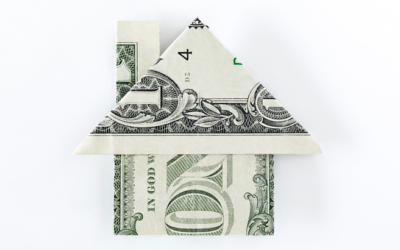
“Your credit score is a critical piece of the puzzle when it comes to qualifying for a mortgage.”
If you want to buy a home, you should know your credit score is a critical piece of the puzzle when it comes to qualifying for a mortgage. Lenders review your credit to see if you typically make payments on time, pay back debts, and more. Your credit score can also help determine your mortgage rate. An article from US Bank explains:
“A credit score isn’t the only deciding factor on your mortgage application, but it’s a significant one. So, when you’re house shopping, it’s important to know where your credit stands and how to use it to get the best mortgage rate possible.”
That means your credit score may feel even more important to your homebuying plans right now since mortgage rates are a key factor in affordability. According to the Federal Reserve Bank of New York, the median credit score in the U.S. for those taking out a mortgage is 770. But that doesn’t mean your credit score has to be perfect. The same article from US Bank explains:
“Your credit score (commonly called a FICO Score) can range from 300 at the low end to 850 at the high end. A score of 740 or above is generally considered very good, but you don’t need that score or above to buy a home.”
Working with a trusted lender is the best way to get more information on how your credit score could factor into your home loan and the mortgage rate you’re able to get. As FICO says:
“While many lenders use credit scores like FICO Scores to help them make lending decisions, each lender has its own strategy, including the level of risk it finds acceptable. There is no single “cutoff score” used by all lenders and there are many additional factors that lenders may use to determine your actual interest rates.”
If you’re looking for ways to improve your score, Experian highlights some things you may want to focus on:
- Your Payment History: Late payments can have a negative impact by dropping your score. Focus on making payments on time and paying any existing late charges quickly.
- Your Debt Amount (relative to your credit limits): When it comes to your available credit amount, the less you’re using, the better. Focus on keeping this number as low as possible.
- Credit Applications: If you’re looking to buy something, don’t apply for additional credit. When you apply for new credit, it could result in a hard inquiry on your credit that drops your score.
Bottom Line
Finding ways to make your credit score better could help you get a lower mortgage rate. If you want to learn more, talk to a trusted lender.
To view original article, visit Keeping Current Matters.
The Top 5 Reasons You Need a Real Estate Agent when Buying a Home
Keep in mind, every time you make a big decision in your life, especially a financial one, you need an expert on your side.
Don’t Let Your Student Loans Delay Your Homeownership Plans
You don’t have to figure this out on your own. The best way to make a decision about your goals and next steps is to talk to the professionals.
Boomers Moving Will Be More Like a Gentle Tide Than a Tsunami
While not all baby boomers are looking to sell their homes and move – the ones who do won’t all do it at the same time.
The Best Week To List Your House Is Almost Here
The third week of April brings the best combination of housing market factors for sellers.
Is It Easier to Find a Home to Buy Now?
To help you explore the growing list of choices you have now, team up with a local real estate agent you trust.
What Every Homebuyer Should Know About Closing Costs
Your closing costs are the additional fees and payments you have to make at closing.







.jpg )



